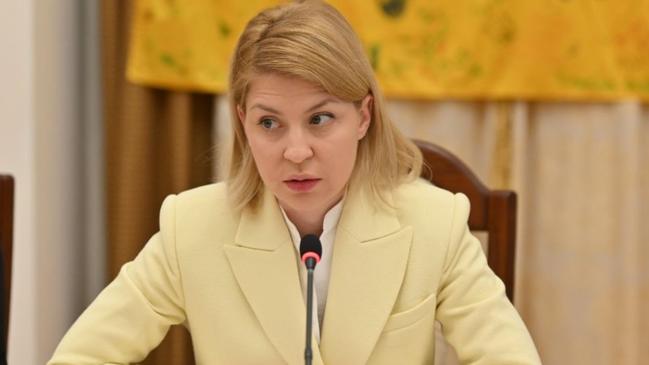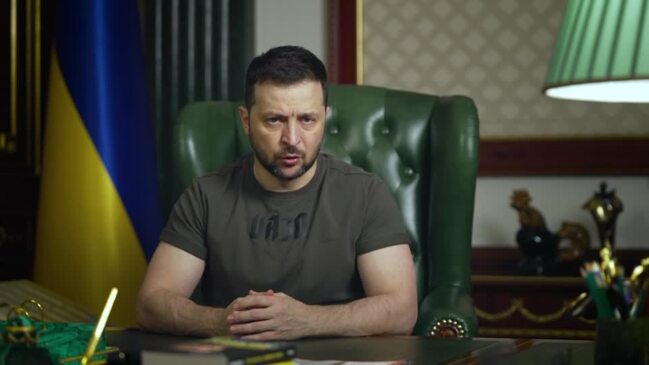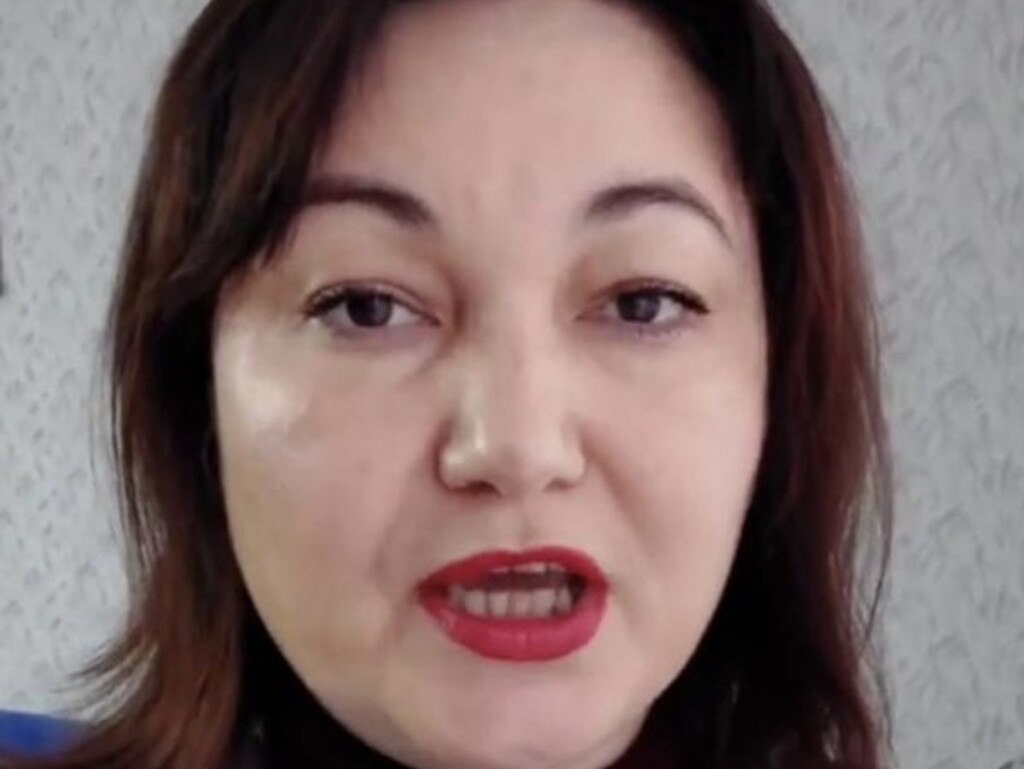Ukraine deputy PM says ‘Russia will pay for sexual violence inflicted on women’
Horrifying stories detailed at UK conference as Ukraine deputy PM reveals how Russia has used sexual violence to ‘instil fear’.

Ukraine deputy prime minister Olha Stefanishyna has told an international conference that “Russia will pay” for sexual violence inflicted on Ukrainian women.
At the British government-organised conference in London, Preventing Sexual Violence in Conflict, Ms Stefanishyna told attendees including the Countess of Wessex UN officials, politicians and charity groups that Russia was using sexual brutality as a weapon of war “to instil fear, to break our resistance, to demoralise us”.
The conference has heard how Ukrainians have been gang raped in front of family members, tortured and subjected to horrific abuse, including castration.
But the issue is not confined to the current Russian aggression. Afghanistan delegates told of a drastically deteriorating situation in their country, with 68 per cent of woman experiencing some sort of violence in the 15 months since the Taliban took control of the country.
Australia’s former human rights commissioner Gillian Triggs, who is now assistant Secretary-General in the Office of the United Nations High Commissioner for Refugees, told The Australian sexual violence in conflict areas was forcing growing numbers of women to become refugees and moving across borders.
She said Australians, who had always been committed to eradicating gender-based violence, could take a stronger role in Myanmar and also at Cox’s Bazar, Bangladesh, where there are one million refugees at Kutupalong, the world’s refugee camp.
Ms Triggs acknowledged Australia’s distance from major conflict zones meant the issues weren’t front of mind for Australians. But she said there were 14 conflicts of emergency for the UNHCR, and the question was how to engage Australia with sexual violence and refugee issues.
“I would like to see Australia play a stronger leadership role in the ASEAN region, modestly and carefully, but we do have a role to play” she said.
“I know diplomatically, Australia is trying behind the scenes but I think we can be strong in that area.”
A recently-released United Nations report said known victims of sexual violence in Ukraine were as young as four. Detailed in the report was one dreadful situation in which an infant girl was forced to perform oral sex on a Russian soldier while her parents – also raped were made to watch.
Crimes also included a Russian soldier’s sexual abuse of an 83-year-old woman in front of her disabled husband.
“I have a message to all Russians, you will be paying for years for every person who have subjected to your crimes,” Ms Stefanishyna said.

British Foreign Secretary James Cleverly announced $A20million funding over three years to tackle sexual violence in Ukraine and six other countries, including Iraq. New evidence has shown an estimated 20 to 30 per cent of women and girls in conflict-affected settings experience sexual violence.
Ms Stefanishyna said sexual violence was horrifically used in “a deliberate way” that more than 80 per cent of survivors did not report attacks.
She said amid this silence, victims required support and confidential services to help overcome trauma, warning that the consequences of Russia’s brutality would be long-standing even when the war was over.
Ukraine has opened up the first four centres at which victims can obtain psychological, medical and legal support in the one place. She urged neighbouring countries to set up similar services for women and children who have fled Ukraine.
“The first step of our actions, even in war, is to provide assistance right here and now, with a network of survivors’ relief centres in Ukraine, which operates on a basis of confidentially. The idea is to provide survivors with services in one place, without making it public.”
She said that Ukraine was also focused on bringing Russia to account, working with international humanitarian and criminal laws to recognise sexual violence as one of the worst crimes against humanity.
Mr Cleverly said “all the time, more lives are wrecked, communities broken, by sexual violence”. He escalated the British response to help build capacity for prosecutions as well as provide further funding to the Global Survivors Fund to establish a platform to protect the rights of children born of conflict-related sexual violence.
“In the 10 years of this initiative, we have learned that the key to success is putting survivors at the heart of all of our policies, so we are urging states to review their programs and embed the Murad code,’’ he said, referencing the policy named after Nadia Murad, the Nobel laureate and Iraqi Yazadi who was kidnapped by Islamic State and abused for three months. Under the code, governments promise to respect and support survivors’ rights and investigate, document and record their experiences in a safe, ethical and effective manner.
“We are using the code to develop new partnerships between the UK and International Criminal Court, deploying cutting-edge technology to help safeguard survivors throughout the justice process,” he said.






